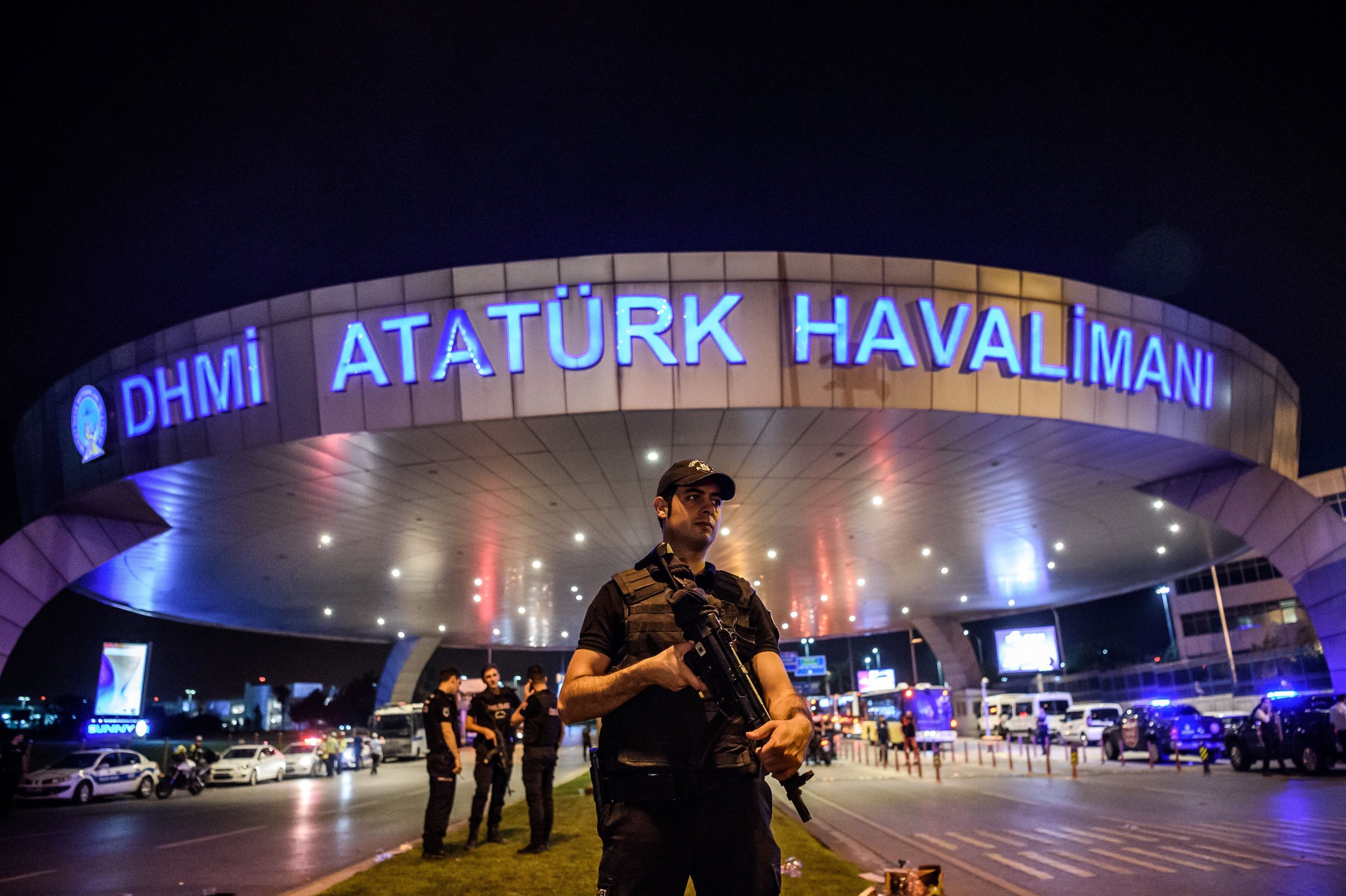
Late Tuesday, three suicide bombers targeted Istanbul's Atatürk airport, opening fire before detonating their devices during the Islamic holy month of Ramadan. One of the militants sparked the assault in the departures hall with a Kalashnikov assault rifle before all three blew themselves up inside or near the arrivals hall, situated a floor below. Bystanders fled the scene, but the deadly attack left Europe's third-busiest airport in chaos. This is the fifth major attack in Turkey's largest city this year. Here's what we know so far.
Death Toll
The attackers, wearing all black, killed at least 41 people, wounding more than 200 people, meaning that the death toll could rise. While the attack garnered widespread international attention, it is not the deadliest attack by suspected radical Islamists in the country in the last 12 months.
In October 2015, ISIS bombers killed 103 civilians and wounded some 400 people at a peace rally near Ankara's central railway station. The death toll could have been higher if it were not for a police officer who shot one of the bombers, who detonated while he lay injured on the floor. The majority of those killed were Turkish nationals, with several foreign nationals also feared dead.
Claim of Responsibility
No group is yet to claim responsibility for the coordinated attack. The Islamic State militant group (ISIS) is suspected of carrying out the blasts due to the nature of both the target and the attack. While Turkey is facing an insurgency from Kurdish militant groups, the Kurdistan Workers' Party (PKK) and its affiliated wing the Kurdistan Freedom Fighters (TAK), these groups usually target Turkish authorities.
ISIS has regularly targeted civilians and tourists in its attacks on Turkish cities in the last year, with the porous shared border with Syria seeing the instability of that war zone trickling into Turkish territory. Turkish Prime Minister Binali Yildirim said preliminary information suggested ISIS operatives were responsible for the attack. The group's semi-official Amaq news agency, which has claimed numerous attacks previously, has remained silent since Tuesday's blasts. As the group uses Turkey as a transit point for its militants to travel into Syria from Europe, the group may be cautious to claim this attack.
Government Reaction
Turkish President Recep Tayyip Erdogan said that the blasts showed that the whole world is at threat from radical Islamism. "The attack, which took place during the holy month of Ramadan, shows that terrorism strikes with no regard for faith and values," he said in a statement. "Turkey has the power, determination and capacity to continue the fight against terrorism until the end."
World governments and organizations also reacted with condemnation to the blasts. White House spokesman Josh Earnest said that the U.S. would continue to support Turkey as a NATO ally "as we continue to confront the threat of terrorism." U.N. Secretary-General Ban Ki-moon called for the perpetrators to be brought to justice and condemned the "terrorist attack."
Belgian Prime Minister Charles Michel, whose capital city, Brussels, was the target of a similar coordinated ISIS attack in March, said on Twitter: "Our thoughts are with the victims of the attacks at Istanbul's airport. We condemn these atrocious acts of violence."
Flight Disruption
Turkish authorities suspended flights in and out of the airport in the immediate aftermath of the blasts, bussing passengers to hotels and diverting some flights due to land at the airport. But flights resumed just hours later. Yildirim said that air traffic had restarted and Turkish Airlines started flying again at 8am local time on Wednesday.
Uncommon Knowledge
Newsweek is committed to challenging conventional wisdom and finding connections in the search for common ground.
Newsweek is committed to challenging conventional wisdom and finding connections in the search for common ground.
About the writer
Jack is International Security and Terrorism Correspondent for Newsweek.
Email: j.moore@newsweek.com
Encrypted email: jfxm@protonmail.com
Available on Whatsapp, Signal, Wickr, Telegram, Viber.
Twitter: @JFXM
Instagram: Read more
To read how Newsweek uses AI as a newsroom tool, Click here.








